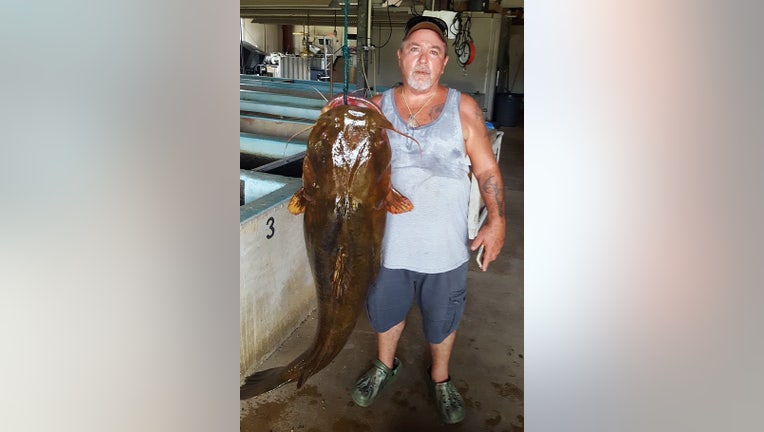Lifelong angler snags 70-pound catfish to set new Florida record

FWC photo
HOLT, Fla. - A Panhandle man says he was in the “right place at the right time” to reel in the biggest flathead catfish ever caught in the state.
According to the Florida Fish and Wildlife Conservation Commission, Lavon Nowling used a rod and reel along with live bait in Santa Rosa County’s Yellow River – a surprise catch in a familiar spot for him.
“I’ve caught some good ones before this fish, but none of them were more than 54 pounds,” Nowling said. “I’ve been fishing since I was old enough to hold a pole and have been fishing on Yellow River as long as I can remember.”
Nowling brought the catch to the FWC’s Blackwater Hatchery near Holt, where biologists weighed it on a certified scale.
The last state-record flathead catfish was caught in 2019 on the same river and weighed 69.3 pounds. Nowling’s catch topped that at 69.9 pounds, measuring 48.5 inches long with a girth of 38.25 inches.
“I’ve been deep-sea fishing to creek fishing and I never expected to catch a state-record fish,” Nowling continued. “That day, I was fishing for channel catfish and can’t believe I caught a huge flathead. I was in the right place at the right time.”
An FWC press release explained that flathead catfish are a nonnative fish found in many northwest Florida river systems. They prefer long, slow flowing, moderately rough rivers. Their solitary lifestyle makes them more difficult to catch than other catfish. Adult flathead catfish feed primarily on live fish, crawfish, freshwater clams and mussels.
“A state record catch is a once in a lifetime achievement for an angler,” offered Jon Fury, FWC’s director for the Division of Freshwater Fisheries Management. “We are pleased to award this state record to Mr. Nowling.”
To properly certify a new freshwater Florida state record, an FWC employee must witness its weighing on a certified scale and a biologist must identify the species. Anglers can check the current state records at BigCatchFlorida.com by clicking on “State Record,” and should notify the nearest FWC regional office if they believe they have caught a record fish.

